1987: Birth of the Organization
The NDC was born out of a desire for fairness and inclusion in the political process. In 1987, the New National Party (NNP) administration, under the leadership of Herbert A. Blaize presented a retrenchment bill before parliament without discussions with the relevant stakeholders. During the debate, Hon. George Brizan and Hon. Francis Alexis, both senior ministers in Government, opposed the bill. Following their presentations, Prime Minister Herbert A. Blaize asked them to apologize to the nation for the position that they took, or else they would have to resign. They opted to resign, along with Junior Minister Hon. Tillman Thomas. Following their resignations, a press conference was held, and a series of public meetings were also held throughout the state of Grenada, Carriacou, and Petite Martinique.
The first public meeting was held close to the St. Paul’s Police Station and chaired by the late Michael Andrew. Michael Andrew, along with Phinsley St. Louis and Kenny Lalsingh, who had previously resigned from the NNP administration, joined the team to chart the way forward. Keith Clouden and the late Jim Henry Massie were also key players in organizing these meetings. The National Democratic Congress was officially launched as a political party in October 1987 with Hon. George Brizan as its leader.
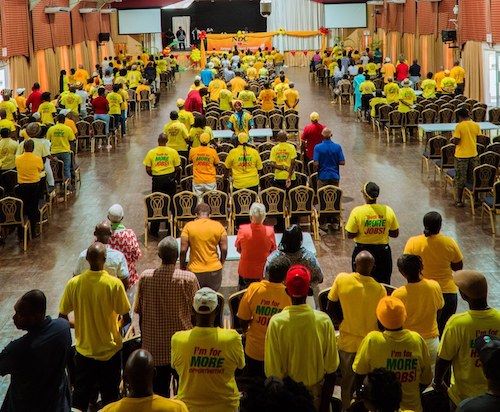
1988: First Convention
The organization and growth of the party were rapid. A number of consultations were held to develop the party’s constitution, policies and principles - documents that continue to guide the affairs of the party. Within six months following the formation of the party, the NDC was fully entrenched in all fifteen constituencies in the tri-island state and ready for its first annual Convention. At this Convention, the following individuals were elected to serve as officers on the national executive committee:
George Brizan - Political Leader
Francis Alexis - Deputy Political Leader
Phinsley St. Louis - Deputy Political Leader
Kenny Lalsingh - Chairman
Colin Labarrie - Deputy Chairman
Jerome Joseph - General Secretary
Tillman Thomas - Assistant General Secretary
Jerome Thomas - Assistant General Secretary
Keith Clouden - Youth Officer
Maureen Emmanuel - Treasurer
Michael Regis - Public Relations Officer
Cecilia Aberdeen - Recording Secretary
At a General Council meeting following the Convention, the party adopted the heart as its symbol of true family love.
1990: Grenadian Tribune
The party began publishing its own newspaper called the Grenadian Tribune. Edited by Leslie Mc Queen, the weekly tabloid was a highly effective medium for spreading the messages of the NDC and building grassroots support in the rural communities. The early editions of the newspaper featured several policy statements of the party, including its stance against corruption and lack of accountability and transparency in governance. Some of the early contributors to the paper were George Brizan, Francis Alexis, Tillman Thomas, and Randolph Mark.
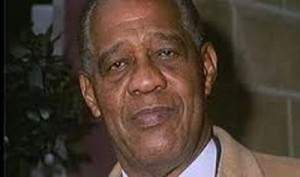
1990: General Elections
General elections were held in March 1990. The NDC won seven of the fifteen seats and formed the Government of Grenada with support of two members of the Grenada United Labour Party (GULP) and two members of The National Party (TNP). Sir Nicholas Braithwaite became the fifth Prime Minister of Grenada, Carriacou and Petite Martinique. Under his stewardship, along with the Minister of Finance, Hon. George Brizan, Grenada launched its most successful structural adjustment program.
1994 - 1999: Leadership of George Brizan
On February 1st, 1995 George Brizan became Prime Minister after the resignation of Nicholas Braithwaite from the post. He served as Prime Minister for four months until the general elections. Following the general elections, NDC became the Opposition party led by George Brizan. His legacy was unearthing practical solutions to address socio-economic challenges in small developing countries.
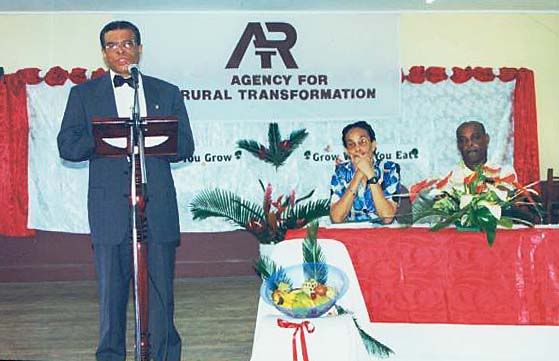
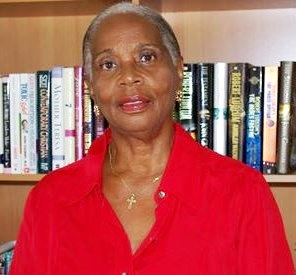
1999: NDC gains first female Political Leader
In 1999, following the general elections, Joan Purcell stepped up to the role of political leader, becoming the first woman to serve in this position in Grenada, Carriacou and Petite Martinique. This was a historic occasion for the tri-island state and the NDC. She was an inspirational leader who advocated for the rights of women and children. Not content to be limited to “female issues,” Mrs. Purcell proved that women could participate in all areas of leadership. Even when her tenure ended, she continued to serve as a community activist.
2000: NDC Renewed and Energized
In 2000, during the Party’s Convention held at the National Youth Center, Tillman Thomas was elected as political leader of the NDC. Members were renewed and energized with the party’s focus on rebuilding the organization. Former members of the People Revolutionary Government (PRG), who had imprisoned Thomas a few years earlier, asked to join the party. As a goodwill gesture, Thomas gave his blessing and the party opened its door to his former jailers. This gesture highlights particular values of humility, integrity, the positive effects of dialogue, forgiveness, reconciliation, peace, and commitment to service.

2003 - 2008: NDC on a Mission
In the 2003 election, the NDC gained seven seats in Parliament and became the official Opposition Party in Grenada, Carriacou and Petite Martinique. The party was a formidable force in parliament, being a voice for society’s voiceless at the highest level. It also became a force to reckon with meaningful engagements with the citizens. The team was on a mission to form the next Government of Grenada and enhance the livelihood of our people and quality of life.
2008: General Elections
On July 8th, 2008, the NDC won the general elections with 11 seats in parliament, forming the Government of Grenada. Tillman Thomas became the 8th Prime Minister of Grenada, Carriacou and Petite Martinique. This was a momentous occasion in the party’s history as it was the first time the party had won an outright victory at the polls. Under the leadership of Hon. Tillman Thomas, the administration made tremendous strides in the tri-island state with an emphasis on rural, social, and economic development.
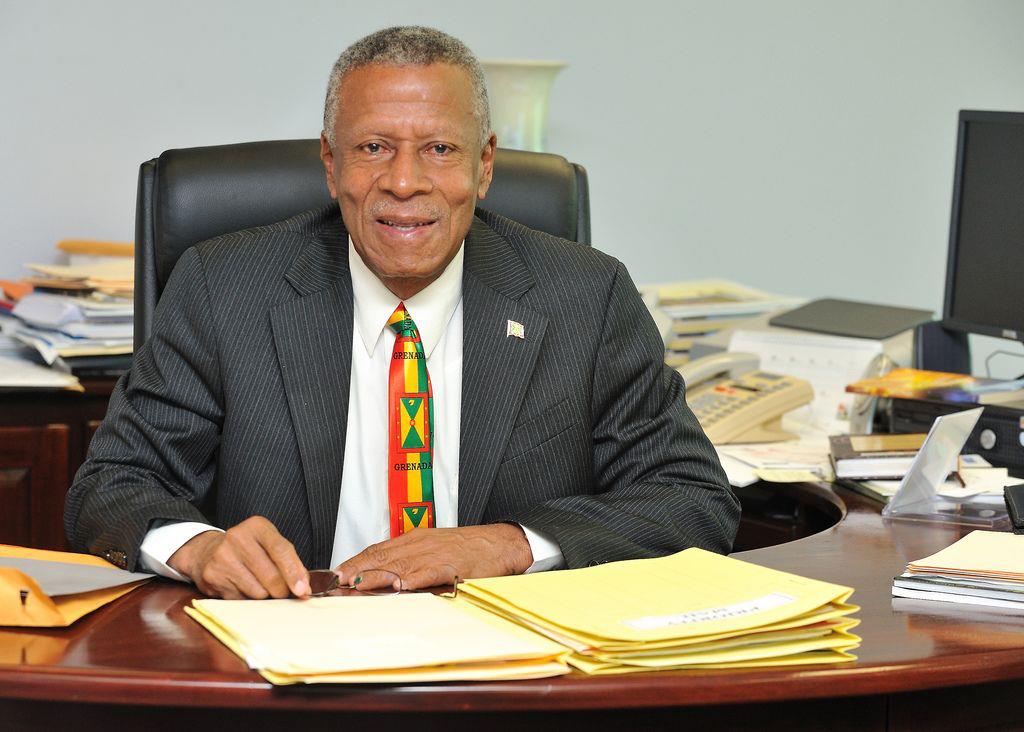

2014: NDC elects a new Political Leader
In February 2014, V. Nazim Burke rose to the challenge of becoming the new political leader of the NDC. His leadership approach focused on inclusion, equity, representation, economic growth, self-reliance, and sustainability, which aligns with the principles and strategic direction of the party. Strong emphasis was placed on developing policies and programs that can help to transform a stagnant economy into a future-ready Grenada. Burke also emphasized the important role of the youth in the progress and development of the tri-island states, noting that youth are the building blocks in the economic, social, and environmental development of the nation.
2016: NDC Launches Policy Agenda
In September 2016, the NDC made history by becoming the first political party in Grenada to launch a Public Policy Agenda for sustainable development of the tri-island state. Emphasis was placed on the importance of evidence-based policy-making practice to solve problems and improve the quality of life for the citizens. The document outlined broad conceptual goals to guide and direct the decision-making processes and actions taken by government to regulate industry and business, protect citizens, and guide social and economic development and the environmental protection goals, reminding policy makers of the issues and approaches to be followed and observed in policy-making practice. This development was crucial to guide policy-making practice through several stages - from inception to implementation.
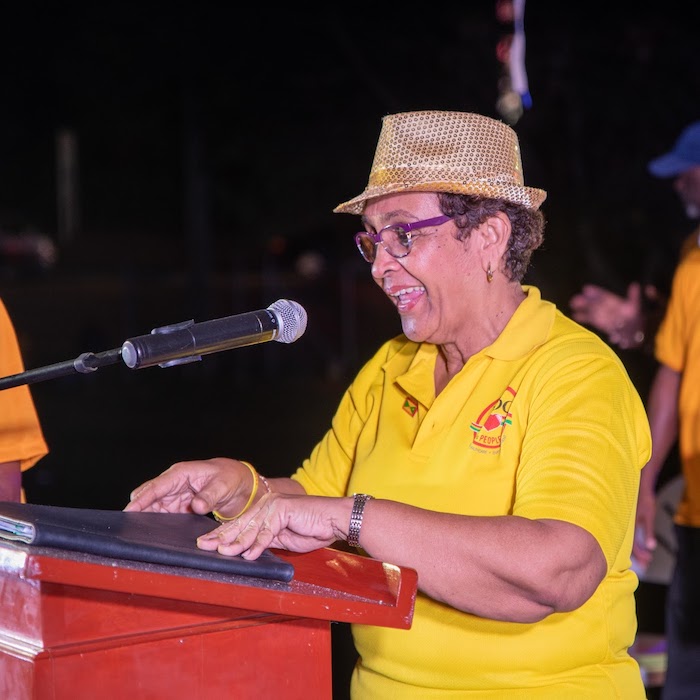
2019: NDC elects a female Political Leader
In November, 2019, during the party’s annual convention, the delegates elected a new political leader, Franka Alexis Johnson Bernardine, who has a stellar track record of leadership in educational institutions across the Caribbean region. During her maiden speech, the new leader said that she is committed to transforming the lives of Grenadians through education and empowerment. One of her core principles suggests that with the appropriate guidance and support, everyone can achieve their desired goals and contribute toward building an equitable and just society.